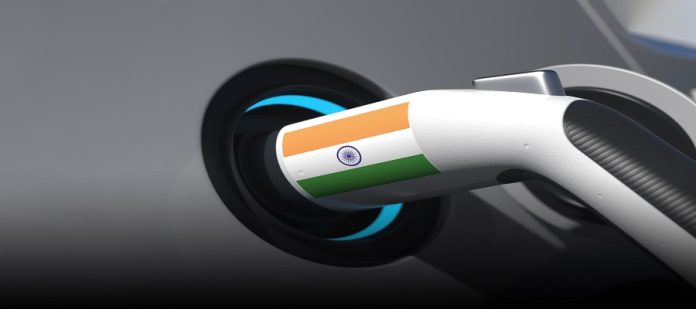In India, the automotive sector is currently witnessing a significant shift, primarily centred around a resolute dedication to environmentally conscious and sustainable transportation. The momentum behind the electric vehicle (EV) revolution is strong, propelling India to establish its standing as a potent worldwide hub for manufacturing electric mobility solutions. For more than a decade, China has indisputably held the mantle of global manufacturing leadership. Nevertheless, in close proximity, India is strategically positioning itself to emerge as the subsequent high-tech production powerhouse, thereby presenting a credible challenge to China’s prominence. This transformative shift holds vast economic potential for India and has far-reaching implications for the international automotive domain.
For an extended period, the automotive industry has played a pivotal role in fortifying India’s economy, making a contribution of over 7 per cent to the nation’s Gross Domestic Product (GDP). The call for cleaner and more sustainable mobility solutions has become increasingly conspicuous, amplified by the escalating global concerns for the environment. The rapid and all-encompassing transformation of the automotive sector will carry noteworthy ramifications for the entire industry and its interconnected supply chains. The underlying structures and perspectives must swiftly adjust to accommodate the forthcoming developments anticipated beyond the year 2030. India has wholeheartedly embraced this challenge, acknowledging the potential of electric vehicles to address both environmental and economic imperatives.
During the last half-decade, the electric mobility industry has undergone rapid expansion, propelling India to the forefront of the global electric vehicle (EV) market. This upward trajectory is poised to persist, as market forecasts predict an average annual growth rate of 49 per cent from 2021 to 2030. The impetus behind this surge emanates from a confluence of factors, encompassing governmental programs, favourable policies, heightened sensitivities toward air quality, and the rising costs of conventional fossil fuels.
By the year 2030, India is poised to ascend as the foremost global hub for electric vehicles (EVs), revealing an extraordinary investment prospect that surpasses $200 billion over the next decade. This momentous shift is positioned to revolutionize India’s transportation landscape, fundamentally altering the dynamics of mobility for both domestic and international travel.
The ascendancy of India as a noteworthy global centre for electric vehicle (EV) manufacturing is not mere happenstance; rather, it arises from a confluence of potent competitive strengths inherent to the nation. Foremost among these is its ample and skilled workforce, representing a cost-efficient labour reservoir that beckons manufacturers. Given China’s median age of 38 compared to India’s youthful median age of 28, the latter enjoys a larger prospective workforce for factory engagement. Coupled with India’s firmly established automotive sector and robust engineering expertise, this advantage fosters an optimal ecosystem conducive to sustaining EV manufacturing endeavours.
Moreover, India’s substantial footprint in the global Information Technology (IT) sector has assumed a pivotal role in propelling innovation within the electric vehicle (EV) domain. The fusion of automotive manufacturing with IT has yielded bespoke software solutions and connectivity innovations tailored specifically for electric vehicles. This intersection has emerged as a catalyst for the advancement of electric vehicle production, as digitalization and seamless connectivity are intrinsic to the optimal functioning of EVs.
India’s ambitious endeavour to establish itself as a preeminent global hub for EV manufacturing extends beyond the mere assembly of electric vehicles. The nation has made substantial investments in the establishment of a comprehensive ecosystem that encompasses diverse components crucial to the EV industry. This ecosystem encompasses battery manufacturing, charging infrastructure development, cutting-edge research and development facilities, and an extensive network of component suppliers.
The incorporation of worldwide supply chains has stood as a pivotal element in enticing foreign Original Equipment Manufacturers (OEMs) to establish production facilities within India. This has initiated a self-perpetuating cycle, augmenting the nation’s manufacturing capacities while cultivating a vibrant environment conducive to ingenuity and cooperative endeavours.
In its determination to consolidate its stance in the global electric vehicle (EV) landscape, India has proactively forged partnerships and collaborative ventures with international stakeholders. Distinguished automotive titans have formed alliances with Indian enterprises to capitalise on the flourishing EV market. These strategic unions offer access to cutting-edge technologies and pave the path for India to tap into invaluable market insights, thereby further expediting the expansion of its EV manufacturing prowess.
The emergence of India as a significant global manufacturing nucleus for electric vehicles bears extensive consequences, spanning both domestic and international spheres. At the local level, the burgeoning EV manufacturing sector is anticipated to engender employment opportunities and bolster indigenous manufacturing capabilities. This, in turn, will allure foreign direct investment, initiating a self-sustaining cycle of economic advancement.
Internationally, India’s rise as a centre for electric vehicle (EV) manufacturing introduces new possibilities for collaboration and rivalry in the realm of the automotive industry. Utilizing its substantial domestic market and cost-efficiency benefits, India possesses the capacity to transition into a pivotal export centre for electric vehicles, catering to both established and emerging markets. This metamorphosis carries the potential to reshape the worldwide automotive landscape, with Indian manufacturers taking on a crucial role in meeting the growing global requisites for electric mobility.
India’s electric vehicle (EV) revolution vividly showcases the nation’s resolute commitment to drive sustainable progress and adopt eco-friendly mobility solutions. In its unwavering advancement within the electric vehicle sphere, India establishes a platform for an electrifying future that extends well beyond its borders. Through the adept utilization of its competitive strengths, cultivation of strategic alliances, and substantial investment in a comprehensive EV ecosystem, India is meticulously paving the route towards assuming a global manufacturing nucleus, at the forefront of steering the transition towards a more environmentally conscious and ecologically sound automotive era. As this remarkable metamorphosis unfolds, the global audience anticipates with keen interest, as India’s electric mobility revolution stands poised to redefine the trajectory of worldwide transportation.










